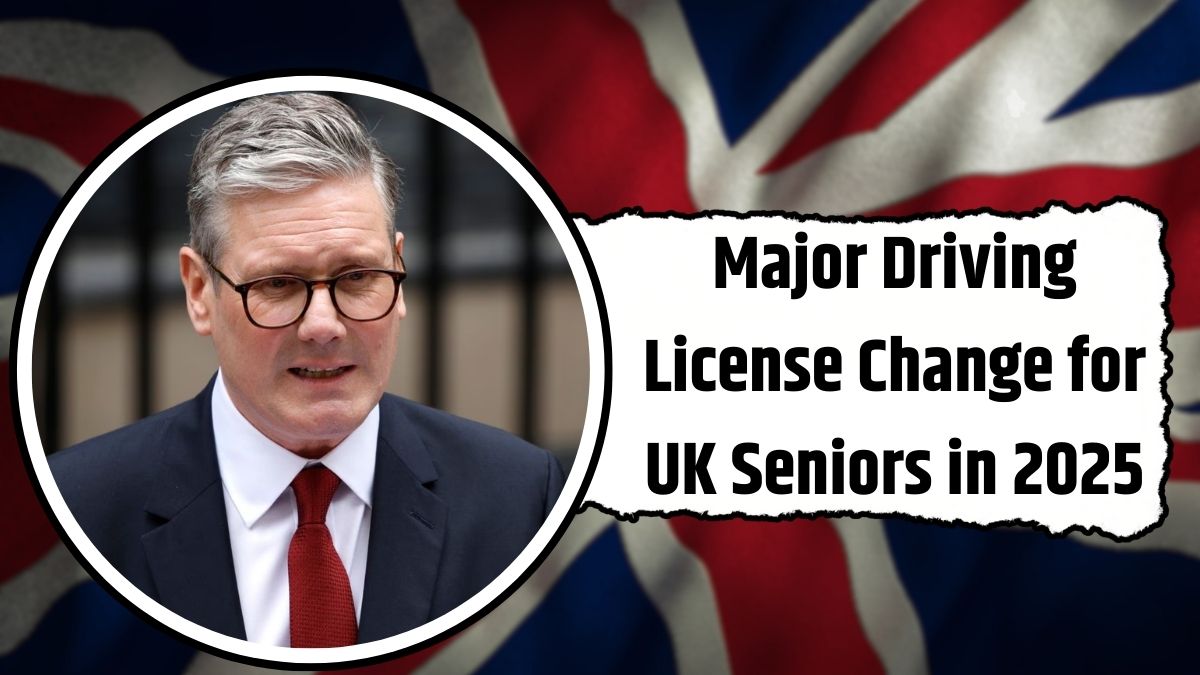Starting in July 2025, senior drivers in the United Kingdom may experience a significant shift in how they renew and maintain their driving privileges. A new policy—currently under discussion—would introduce stricter medical checks for drivers aged 70 and over, marking a potential change in DVLA procedures aimed at enhancing road safety and ensuring fitness to drive among the ageing population.
While this proposed rule is not yet confirmed by the UK government or DVLA as of June 2025, the topic is generating wide public interest and discussion. Here’s what is known, what’s speculative, and how senior drivers can prepare.
What’s Being Proposed for Drivers Aged 70 and Above?
Currently, UK drivers must renew their license at age 70, and then every three years thereafter. This renewal process involves:
- Completing an online or paper application
- Self-declaring medical fitness to drive
However, under the proposed new rule, beginning July 2025, seniors may need to undergo mandatory medical assessments, including:
- A GP-signed medical fitness form
- Vision tests and cognitive screening if flagged
- Random fitness-to-drive evaluations initiated by DVLA
These additional steps would increase accountability and aim to ensure that elderly drivers are medically safe to remain on the road.
Key Differences: Current vs. Proposed Requirements
| Requirement | Current Rule | Proposed Rule (July 2025) |
|---|---|---|
| License Renewal Age | 70 | 70 |
| Renewal Frequency | Every 3 years | Every 3 years |
| Medical Declaration | Self-assessed | GP-signed medical statement required |
| Vision/Cognitive Testing | Rarely requested | Mandatory if driver is flagged or high-risk |
| DVLA Fitness-to-Drive Review | Based on declared conditions only | Random proactive screening introduced |
These proposed measures are designed to balance personal mobility with public road safety, especially as the number of drivers aged 70+ continues to rise.
Why Is This Rule Change Being Considered?
The proposal stems from growing road safety concerns and evolving public health data suggesting that age-related conditions—including vision deterioration, cognitive decline, and mobility challenges—can significantly impact driving ability.
With the UK’s senior population expected to grow rapidly over the next decade, the government is seeking ways to reduce accident risk while still allowing seniors to maintain independent transportation for as long as safely possible.
How the Proposed Rule Could Affect Senior Drivers
While not intended to prevent seniors from driving, the proposed changes introduce new hurdles for maintaining a license. Here’s how drivers aged 70+ might be impacted:
1. Increased Documentation
You would be required to obtain a signed medical certificate from your general practitioner, confirming that you’re fit to drive. This may involve:
- Booking an in-person GP appointment
- Additional eye tests, cognitive evaluations, or lab work
2. Out-of-Pocket Expenses
Although the license renewal itself remains free, the cost of medical exams or vision testing may fall on the individual, depending on the GP’s policies.
3. Potential Delays in License Renewal
With more documentation and verification involved, processing times may increase—especially if the DVLA requests further medical information or testing.
4. Risk of Driving Restrictions or Suspension
If you are deemed medically unfit, the DVLA could limit your license (e.g., to daylight hours only) or revoke it entirely until further medical review.
Tips to Prepare for the July 2025 Driving Rule Changes
Whether or not the proposed rules are officially enacted, it’s wise to begin preparations now. Here’s what senior drivers can do:
- Book Medical Appointments Early: Avoid last-minute rushes by scheduling your GP visit months ahead of your license expiry.
- Monitor Your Health: Keep up with regular vision checks, hearing exams, and cognitive screenings.
- Stay Honest About Warning Signs: Take note of slower reaction times, memory issues, or reduced eyesight—and discuss these with your doctor.
- Research Backup Transport Options: Consider alternatives like senior ride programs, public transport, or ride-share apps in case your driving is temporarily suspended.
- Watch for Official DVLA Announcements: Updated forms and full guidelines are expected in early 2025, so stay informed via DVLA’s website or press briefings.
Exceptions and Special Cases
While the rule could become a standard for most senior drivers, some categories may be assessed differently, including:
- Drivers with disabilities or chronic health conditions
- Commercial vehicle license holders (e.g., HGV, PSV)
- Individuals previously flagged for traffic or health-related driving incidents
Each of these cases will likely undergo case-by-case evaluations, with support from medical professionals and DVLA assessors.
What Is True vs. What Is Speculation?
As of June 2025, there has not been an official DVLA announcement confirming these rule changes. However, misinformation is spreading across social media and blogs, leading to confusion among senior motorists.
What’s Currently True:
- UK drivers must renew their license at age 70, and every three years afterward
- Renewal includes a self-declaration of fitness to drive
- DVLA can request medical evidence for drivers with declared or flagged conditions
What’s Not Confirmed or Is Misleading:
- There is no blanket requirement (yet) for all drivers aged 70+ to submit GP-signed medical forms
- Cognitive or vision testing is not currently mandatory unless a health concern is flagged
- The July 2025 policy is not law at this time and remains under consideration
The Global Context: Ageing Drivers and Road Safety
The UK isn’t alone in considering tighter policies for older drivers. Countries like Australia, Japan, and parts of the United States have implemented stricter medical evaluations or renewal restrictions for senior motorists.
This trend reflects a global challenge: how to support safe driving for seniors while protecting the broader public. As people live longer, maintaining safe mobility is key—not just for drivers, but for the communities they navigate.
FAQs
Q1. Will all drivers over 70 lose their license?
No. Most seniors who meet medical and vision standards will retain their license. The rule only introduces stricter medical checks, not automatic disqualification.
Q2. Is the new rule in effect now?
No. As of June 2025, the policy has not been finalized. The DVLA may issue updates later this year or early 2025.
Q3. What health conditions may disqualify a senior from driving?
Severe cases of dementia, significant vision impairment, epilepsy, or neurological conditions may result in suspension, but every case is individually assessed.
Q4. Will the license renewal still be free?
Yes. Renewal itself is free, but GP visits or eye exams may have associated costs, especially if not covered under NHS services.
Q5. How can I stay informed?
Check the official DVLA website regularly and subscribe to government alerts if available.







